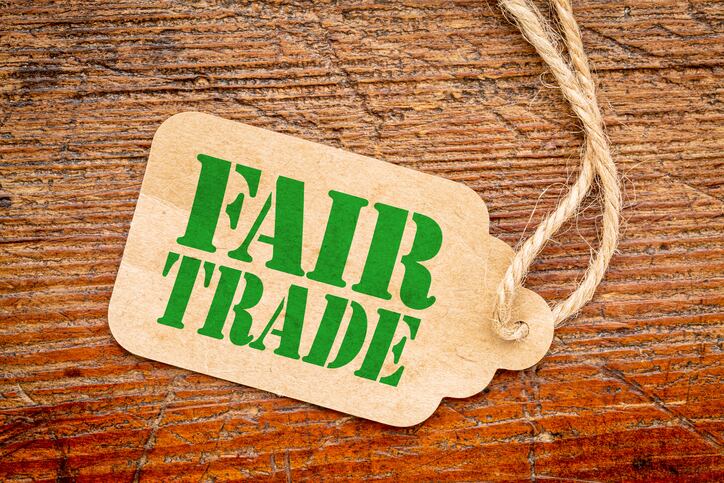As the world’s second biggest emitter of greenhouse gases, the US was responsible for 15% of global emissions in 2015.
That burden now has to be carried by the agreement’s member states not only in an environmental sense but also in the adoption of more resilient and sustainable farming practices and systems.
“We’re deeply disappointed by President Trump’s decision,” said the Soil Association, a UK charity that campaigns for healthy, humane and sustainable food, farming and land use.
“In the US, as elsewhere, we need a much stronger focus on tackling greenhouse gas emissions from agriculture. In addition, the impacts of climate change pose major risks to farming and food.”
It’s a sentiment broadly echoed by trade associations like FoodDrinkEurope (FDE), food makers like Unilever and research organisations like the Food Climate Research Network.
But according to Andy Green, sustainability expert at certification body Cert ID Europe, the US’ withdrawal has galvanised efforts to promote agroecological farming methods.
“The US government’s announcement of the Paris Agreement may be a benefit in disguise," he said. "If the rest of the world steps up and individual US business do the same then it may create renewed focus.”
“Currently all the national declared commitments fail to meet the two degree upper limit in temperature rise and must be improved anyway. If the US does nothing then the rest of the world will have to deal with the 0.3-0.5 degree rise that the US emission will create. We can do this if the desire is there.“
The Soil Association added: “It’s been encouraging to see the defiant response from US mayors, governors, business and civil society – saying they will fight this decision and ramp up climate action locally,”
“We will redouble our efforts to press for stronger climate change policies overall in the UK – and for action in the food and farming sector specifically.”
Demand drives change

Successful adoption of farming methods that generally emit fewer greenhouse gases, use less energy and store greater amounts of carbon in soils per hectare, has generally been placed at the door of governments in the belief that policies are the driving force for change.
But that may no longer be the case as businesses, farmers and consumers look to take on more prominent roles in swaying policy decisions.
According to Green, while all three factors are equally important, a convincing case could be made for demand and its influence in ultimately driving change.
“It is unreasonable to expect the average consumer to understand the sustainability issues of their weekly shop and make the demands upon the brands they buy to address these.
“Some are engaged but because they have been ‘acted upon’ by an ‘external force’ such as an NGO campaign, a TV documentary or a personal experience when travelling.
“Most however, expect that the brand owners will deal with any issues and this is not an unreasonable expectation. Is it even acceptable, given all that we know, for there to be any unsustainable products?"
The raft of ethical labelling, sustainability accreditations and questions about transparency leave the industry in no doubt an unsustainable product would be a high-risk manoeuvre for the food producer.
Initiatives such as Tesco’s commitment to tackling food waste, Waitrose’s efforts to address sustainability issues identified by their suppliers and the dairy firm Yeo Valley’s focus on improving soil health and organic matter levels, suggest consumer attention and choice is firmly fixed on responsible food production.
“There is of course much to do,” said Green. “The British food and drink industry can play a lead role in the transformation to sustainable supply chains.
“Sustainable palm oil is a good example of the success and leadership role the UK has taken on this. Despite being a comparatively small importer of palm, the UK’s voice still carries weight and suggests that similar targets could also help drive the sustainability agenda forwards.
“In addition, it is important that we do not ignore the issues in commodities that carry other risks, such as child labour, forced labour, health and safety issues, water use issues or land grabbing, where much work is still needed.”
Labelling and certification

Product labelling is perhaps one of the most effective forms of directly communicating information about the product’s eco-credentials.
Closely related are the certification schemes that speak of a company’s commitment to human rights, animal welfare, and labour laws.
But as Green points out the ever-expanding universe of sustainability certification schemes and labels has made this approach more complex.
The need to highlight issues as diverse as animal welfare and deforestation has resulted in some organisation defining their own standards and schemes.
“Part of the reason that there has been some good progress with sustainable palm oil is due to there really only being one standard for this,” he explains.
“While certification remains an important key part of this process, the way that certification is delivered does need to be looked at. The model of annual onsite audits regardless of risk and complexity has received little challenge.
“We should be able to demonstrate more transparency than ever before with less audit intervention and associated costs. This in turn will help increase the engagement with certification and drive further improvements towards the end goal of truly sustainable agrifood supply chains.”
The Soil Association added that the mass of labels and schemes, not all of which were rigorously inspected, only adds to consumer confusion.
“Consumers want to be able to choose products that are better for animal welfare and the environment,” they said.
“Standards for the production of organic food are enshrined in law and strictly controlled through certification, which is mandatory for organic food.
“Confusing labels are unhelpful as they undermine the natural consumer preferences for products which meet higher ethical standards.”
Green points to the dilution of these standards. Differences in Fairtrade or Rainforest alliance coffee, sustainable palm over responsible sugar are so multifaceted, he said that consumers purchase brands in the hope they are doing the right thing.
“And that’s before we start on the small print where some schemes have three of four different ‘claims’ that accompany their trademarks!
“It makes more sense for a brand owner to simply claim that all their products contain responsibly sourced ingredients and not label products at all under the current system.
“Consumers do not buy ingredients or derivatives, they buy finished products and want these to be safe and sustainable.”
